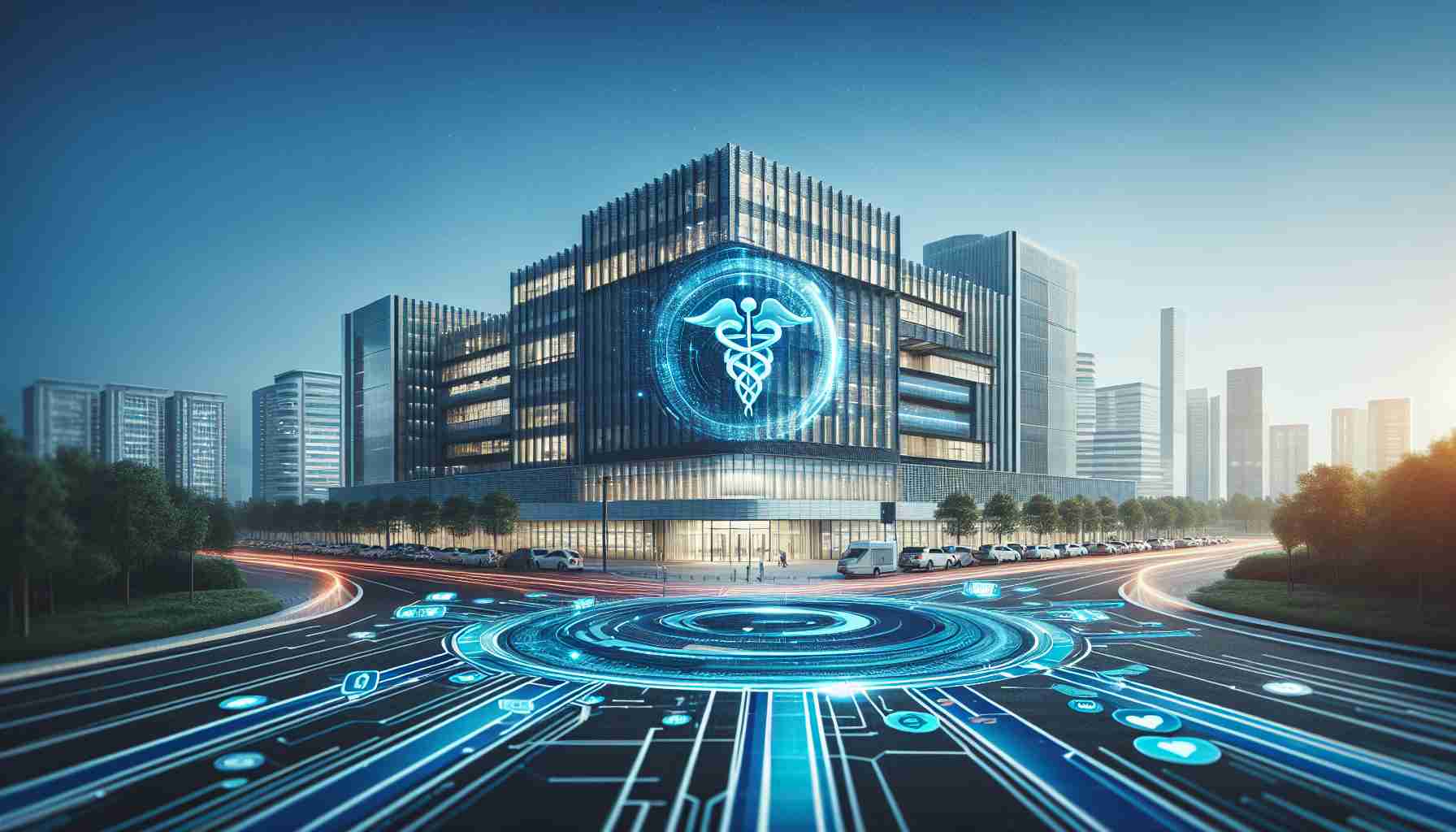Accelerating Smart Healthcare Innovation through NVIDIA and Chang Gung Memorial Collaboration
NVIDIA’s official announcement on June 2 about their collaboration with Chang Gung Memorial Hospital marked the onset of a powerful alliance aimed at propelling technological innovation within Taiwan’s smart healthcare sector. Only days after the announcement, a delegation led by NVIDIA’s Vice President of Global Healthcare, Kimberly Powell, visited the hospital, signifying a deeper collaborative venture.
The executive team, which included Powell, alongside other key figures such as David Niewolny and Iris Chen, was heartily welcomed by the hospital’s leadership. The principal figures, Dr. Chen Chien-Tsong and his team, expressed great honor at hosting the NVIDIA representatives, highlighting the mutual benefit and potential springing from their partnership.
Discussions delved into perspectives on the trajectory of Taiwan’s healthcare industry over the upcoming two years, as well as technology innovation and market strategies. Subjects like digital transformation, generative AI, and the trends in AI applications for medical diagnosis and treatment were among the topics explored.
Distinguished by establishing an AI core laboratory back in May 2018, Chang Gung Memorial Hospital has since unveiled numerous AI models and obtained three medical device licenses, demonstrating the hospital’s commitment to integrating AI in clinical settings. Indeed, their development encompasses more than 40 clinical models and the conception of various Generative AI projects, which include nursing robots and advanced consultative systems to revolutionize patient care.
In recognizing the hospital’s effort in smart healthcare advancement, NVIDIA’s Vice President Powell lauded their early investments in AI and its application to clinical medicine. Integrating NVIDIA’s extensive experience in AI, with Chang Gung’s medical expertise, represents a merger set to foster significant advances within healthcare.
During a series of over 30 themed talks in Taipei about generative AI and large language models, Powell stressed that the collaboration would extend to future-genetics analysis, further showcasing the potential of their joint endeavors. Through this partnership, NVIDIA and Chang Gung Memorial Hospital are setting the stage for broader possibilities in the realm of smart healthcare, driving technology forward for better patient outcomes.
Key Questions and Answers:
Q: What is significant about the collaboration between NVIDIA and Chang Gung Memorial Hospital?
A: The collaboration is significant because it combines NVIDIA’s expertise in AI and technology with Chang Gung Memorial Hospital’s medical knowledge and clinical experience. This partnership aims to accelerate the integration of AI into healthcare, leading to more innovative and improved patient care outcomes.
Q: What has Chang Gung Memorial Hospital achieved in AI prior to the collaboration?
A: Chang Gung Memorial Hospital has established an AI core laboratory, developed over 40 clinical AI models, and received three medical device licenses indicating their active role in integrating AI into clinical applications.
Q: What future areas of innovation are NVIDIA and Chang Gung Memorial Hospital looking to explore?
A: The collaboration aims to explore innovations in digital transformation, generative AI, and large language models, with future ventures potentially including genetics analysis.
Key Challenges and Controversies:
Implementing AI in healthcare poses challenges, such as:
– Ensuring data privacy and security.
– Integrating AI tools with existing healthcare IT systems.
– Addressing regulatory and compliance issues related to medical devices and AI applications.
– Overcoming potential resistance from healthcare professionals due to fears of job displacement or increased complexity.
Controversies or debates may arise regarding:
– The ethical implications of using AI in medical decision-making.
– The potential for AI to exacerbate health disparities if not correctly implemented.
– Questions about the interpretability and transparency of AI models in healthcare.
Advantages and Disadvantages:
Advantages:
– Potential for more accurate and quicker diagnoses.
– Personalized treatment plans.
– Improved efficiency in healthcare services.
– Reduction in long-term healthcare costs.
Disadvantages:
– Initial implementation can be costly.
– Risks associated with data breaches and cybersecurity.
– Concerns about the reliability and accountability of AI decisions.
– Necessary training for healthcare practitioners to effectively use new technologies.
If you would like to learn more about NVIDIA and Chang Gung Memorial Hospital, you can visit their official websites for further information:
– NVIDIA
– Chang Gung Memorial Hospital
Please note that the URLs are provided for reference and were believed to be valid at the time of writing.
The source of the article is from the blog enp.gr

